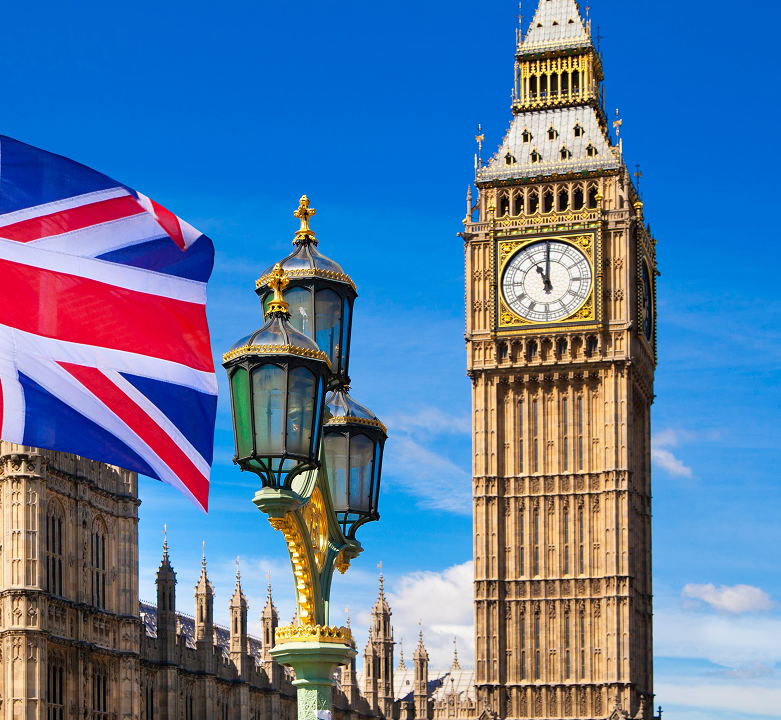Global Public Affairs Newswire – 12 July 2024
Welcome to the latest instalment of FTI Consulting’s fortnightly Global Public Affairs Newswire.
This week, we bring you an election update from the US, where President Biden has so far defied mounting speculation that he could step aside for another Democratic candidate, and from the UK, where Labour Leader Sir Keir Starmer has achieved a landslide election victory, becoming the UK’s first Labour Prime Minister since 2010. This edition also carries a special update on the election results in France, where a coordinated ‘Republican Front’ effort by voters has kept the right-wing Rassemblement National from victory, but also resulted in a hung parliament.
Beyond this, we bring you our usual comprehensive market update, with analysis of the latest big public affairs developments across the world’s major markets. This week features updates covering developments in India, the UK, the USA, Germany, Colombia, Ireland, Malaysia, Spain, and Brazil.

Our global team are closely tracking the key votes and contests in this worldwide ‘Year of the Election’. In each edition of the Newswire, we look to dive into the upcoming implications, considerations, and opportunities for business.

Biden Still In: Following what was, by all accounts, a disastrous performance in the first U.S. Presidential debate, President Biden has so far defied mounting speculation that he could step aside, sending a letter to House Democrats on Monday doubling down on his determination to stay in the race. In part, the letter said Biden has “heard the concerns that people have … [and he is] not blind to them,” noting, “I wouldn’t be running again if I did not absolutely believe I was the best person to beat Donald Trump in 2024 … I am firmly committed to staying in this race.” Amid increasingly public and private concern from Democratic lawmakers, especially those who are up for reelection, and donors, Biden again defended his candidacy on a live TV interview on Tuesday, expressing his frustration at “elites in the party” calling on him to step down. House Democrats also met on Tuesday morning to discuss Biden’s nomination. House Democratic leadership emerged from the meeting touting their continued support for the President while rank-and-file members continue to have mixed views as to whether he should stay or step aside. This comes as Democrats are increasingly showing signs of openness to the potential for Vice President Kamala Harris to replace Biden, in the unlikely event he steps aside – given choosing a different candidate could create division at a time when the Democratic Party are seeking to show unity.
Trump Continues to Poll Ahead of Biden on Key Issues: In the national polls, Trump remains ahead of his opponent – with Real Clear Polling placing Trump ahead by an average of three points. Notably, one USA TODAY poll found that more registered voters believe Trump would do a better job than Biden on economic and immigration issues. 51% of respondents said they now approve of Trump’s performance when he held office from 2017 to 2021, in contrast to Biden’s current job performance approval rating of 41%. While the poll also showed that voters feel Trump is the “most capable candidate to deal with China and handle national security issues,” Biden polled higher in areas of handling race relations and health care. While media coverage following their first debate has mostly focused on Biden’s health, polling indicated that Trump slightly outperformed his expectations among likely voters who watched the debate. A second debate is also scheduled for September, which Biden’s campaign has confirmed he plans to attend.
Trump’s 2024 Republican Party Platform and Speculation over VP Pick: On Monday, the GOP Convention Platform Committee passed Trump’s 2024 Republican Platform with overwhelming support, The new Platform sets out the Party’s “America First” agenda, in a more concise and digestible way than past versions. Notably, for the first time in 40 years, the document does not include mention of a federal abortion ban. It also seems to soften the stance on same-sex marriage by removing references to “traditional marriage” as between “one man and one woman.” This comes ahead of the Republican National Convention, which is due to take place in Milwaukee, WI next week, where the party is expected to officially nominate Trump as the GOP Presidential nominee, and officially adopt the 2024 Republican Party Platform. Trump has yet to announce his pick for Vice President but pundits have speculated that the field is now down to just three options: U.S. Senator JD Vance (R-OH) whose populism appeals to Trump’s MAGA base; U.S. Senator Marco Rubio (R-FL) who may bring more establishment Republicans and Independents to Trump’s side; and, North Dakota Governor Doug Burnam (R) who has been little known on the national stage but has executive experience.

Following a landslide General Election result last Thursday, the Labour Party has returned to government in the UK for the first time since 2010. The final result saw Labour win 412 of the 650 available seats in the House of Commons, a gain of 211 seats on their result in 2019. The result gives the new Prime Minister Sir Keir Starmer a commanding majority of 172, akin to Tony Blair’s era-defining victory for Labour in 1997. Accordingly, Starmer was invited by the King to form a Government, an invitation he accepted immediately, delivering his first speech as Prime Minister outside 10 Downing Street on Friday afternoon.
For the Conservatives, led by now-former Prime Minister Rishi Sunak, the election was a disaster. The party, which had been in government since Labour last left office in 2010, won just 121 seats, a net loss of 251 seats since the 2019 General Election. This represents the worst result in the Conservative Party’s almost 200-year history, following a disastrous election campaign which was overshadowed by scandal after it emerged that Conservative politicians and party aides had placed bets on the date of the election, possibly based on privileged insider information.
Labour were not however the only big winners of the night, and the Conservatives not the only party to be punished by their electorate. The Liberal Democrats, who were in government as part of a Conservative-Liberal Democrat coalition from 2010 to 2015, won 72 seats- a net increase of 64 seats and their best result since the party adopted its modern form in 1988 following a merger of the Liberal Party and the Social Democratic Party. Conversely, the pro-independence Scottish National Party (SNP), who have dominated Scottish representation at Westminster since the 2015 election, were reduced to their smallest number of seats since 2010. Today, the SNP holds just 9 seats, a net loss of 39 seats since 2019.
Perhaps most strikingly, this year’s General Election was also a major breakthrough moment for two challenger parties seeking to challenge the two main parties from either end of the political spectrum – the Green Party and Reform UK. The Greens, who won 4 seats (an increase of 3 seats), capitalised on left-wing dissatisfaction with Labour Leader Sir Keir Starmer’s centre-leaning approach, and with the party’s foreign policy positions. Meanwhile, Reform UK, led by high-profile pro-Brexit outsider Nigel Farage, won five seats, winning over Conservative voters dissatisfied with Rishi Sunak’s government, but also securing the support of some traditional Labour voters who supported Brexit in 2016 and voted for the Conservatives for the first time in 2019.
Labour now has a solid mandate to deliver its 2024 manifesto, titled simply “Change” and is already dreaming of power beyond a first term of government. Yet retaining a dominant position at the next election cannot be taken for granted. Securing victory on a vote share of just 34% means there are many pitfalls ahead of Starmer’s administration as it navigates and unpicks 14 years of Conservative governance. How Starmer will approach this and position his party for sustained electoral success, or fail to do so, will start to emerge in the coming months- but for the foreseeable future, Starmer is as secure in 10 Downing Street as it is possible for a Prime Minister to be.

Following the second round of parliamentary elections on July 7th, no clear majority has emerged from the general election. The results however, defied predictions, with turnout higher than in the first round, at 67.5%. The Rassemblement national has come in third only, with a projection of 143 seats, nearly half of what was planned 2 weeks ago, and the new leading force in Parliament is the left-wing coalition of the Nouveau Front Populaire (Socialist Party, Greens, Communist Party and La France Insoumise – far-left), with 183 MPs. Ensemble, the coalition supporting Emmanuel Macron has 163 seats.
A hung parliament means that the ‘republican front’ worked better than expected and that the “withdrawal and endorse” approach convinced voters to not disperse the anti-RN vote. However, it also means that government formation will likely require forms of inter-party agreements or coalitions often seen in other European countries but rarely in France. Prime Minister Gabriel Attal has given his resignation to President Emmanuel Macron on July 8, but the President has refused it, asking Attal to continue to lead the government until he is able to form a new government. The major scenarios that emerge are as follows:
- A coalition government including parties from the left-wing Nouveau Front Populaire (NFP) and the presidential bloc (330 to 380 MPs) is the main scenario despite having its own complications. With the NFP now close, but not close enough, to the majority threshold, Jean-Luc Mélenchon, the leader of the far-left component of the NFP, has asked Emmanuel Macron to nominate a Prime Minister from NFP. However, centrist forces have also rejected working with the far-left La France Insoumise (LFI). It is possible that the NFP candidate to become PM could come from the Socialist Party or the Greens, the more moderate forces or the coalition and the ones that centrist forces are most willing to work with as part of a national unity government.
- A coalition could also emerge including only the most centrist parties of the left-wing Nouveau Front Populaire, the presidential bloc, and the centrist wing of LR (240 to 320 MPs). This Government would not require majority support and would function similarly to Macron’s previous minority government: by ensuring that less than 289 MPs vote against them in a no confidence vote.
- The creation of a caretaker government composed of high-ranking nonpartisan civil servants or non-divisive/consensual political figures, is increasingly mentioned. However, France has not experienced caretaker governments in recent decades, and it is not in the French political tradition for political parties to compromise to the extent done in parliamentary democracies.

In a significant turn of events from the recent European elections, Spanish Prime Minister Pedro Sánchez has solidified his position as a leading figure among European socialists. While the People’s Party (PP) garnered the most votes in Spain and secured the largest representation in the European Parliament with 22 seats, it is Sánchez’s rise that has captured widespread attention.
Despite the PSOE (Spanish Socialist Party) coming in second with 20 seats, Sánchez has emerged as the foremost leader of social democracy in Europe. His strengthened position is attributed to leading the largest socialist national delegation at the European Parliament, as well as being EU’s socialist prime minister with the highest popular backing. This influence is likely to enhance his bargaining power within the European socialists (S&D) and potentially secure Spain a prominent role in the future European Commission.
Notably, Teresa Ribera, the PSOE’s lead candidate and current Vice-President and Minister for Ecological Transition, is poised to take on a significant role as the next Green Deal Commissioner in the EU. Ribera’s potential to spearhead the European Green Deal, possibly with a vice-presidential rank, underscores her ambitions in driving climate policy forward. However, her vision may face challenges given the European Commission’s shifting focus towards industrial competitiveness over environmental commitments.
Sánchez’s leadership within the Spanish centre-left has been further reinforced by the underperformance of Sumar, PSOE’s coalition partner in Spain, which only secured three seats. Additionally, the decline in representation of the Catalan independentists (Junts), from three to one MEP, strengthens Sánchez’s negotiating power in forming a socialist government in Catalonia.
While the PP’s strategy to frame the European elections as a referendum on Sánchez fell short of expectations, with fewer seats than some polls predicted, Sánchez’s victories on both national and European stages have marked a significant political milestone. This shift highlights his growing influence and sets the stage for his continued leadership within the European social democratic landscape.
Market updates

At a summit on artificial intelligence in India’s capital city, union IT minister Ashwini Vaishnaw has announced plans for a public AI platform adopting a digital public infrastructure (DPI) approach, aimed at democratizing AI access across sectors such as agriculture and healthcare. The Global IndiaAI Summit, hosted by the Indian government on July 3-4, brought together global experts to discuss developments in AI.
The minister underscored the role of DPI in neutralising monopolies: governments invest in a DPI platform and every player and user comes on board. India has been using DPI, especially its UPI real-time payment system, as an instrument of diplomacy.
Vaishnaw also emphasized the need for global collaboration in managing AI risks and setting limits to safeguard users. His comments assume significance as India is looking for ways to regulate AI “without hampering innovation”. While the government is moving cautiously for now, it may amend its information technology rules for “responsible use of AI”.
The summit also featured the sixth meeting of the Global Partnership on AI (GPAI) Ministerial Council, chaired by India with participation from 28 countries, as well as the EU, OECD, UNESCO and the industry. Participants endorsed a 19-point agenda focused on acknowledging AI risks, promoting ethical AI, and aligning with OECD AI guidelines. They also backed a stronger GPAI-OECD partnership, integrating current OECD members and GPAI countries equitably under the GPAI framework.
The summit served as a platform for a global dialogue on AI’s future, and reflected India’s ambition to shape international AI governance while ensuring inclusivity and responsible innovation.

Labour’s landslide election victory last week marked a pivotal moment in British politics, ending 14 years of Conservative-led government. After being formally appointed as Prime Minister by King Charles III, Keir Starmer delivered his first address to the nation outside 10 Downing Street. He focused on the tasks ahead for his government, acknowledging that the country had voted for change, and pledged that the work to deliver this would begin immediately.
The unveiling of Starmer’s Cabinet was largely in line with expectations and reflected his desire for – and promise to the electorate of – stability and consistency after the political upheaval of recent years. Most of those appointed to the Cabinet are relatively knowledgeable in their briefs, having ‘shadowed’ the same in opposition. A minority have also previously served in government prior to 2010, when Labour last held power. Their ideological leanings tilt towards the right of the party, aligning with the pro-business narrative that Starmer has promoted in recent years- a sharp contrast with the approach taken by Starmer’s predecessor Jeremy Corbyn.
Pace has been front and centre of the new administration’s approach. On Sunday, Starmer began a whistle-stop tour of the devolved nations of Scotland, Wales and Northern Ireland with the declared objective of “resetting” Westminster’s relationship with each administration. Later in the week, he continued similar outreach, inviting all of Britain’s directly-elected “metro mayors” to Downing Street as part of his plans to “push power and resources out of Whitehall”. Separately, the newly appointed Foreign Secretary, David Lammy, undertook a whirlwind tour of Germany, Poland, and Sweden, where he vowed to develop an ambitious new relationship with the EU, including on security and energy.
One of Starmer’s first decisions as Prime Minister was to scrap the previous Conservative government’s Rwanda migrant deportation scheme. The scheme sought to discourage migrants crossing the English Channel and arriving illegally in the UK by removing them to Rwanda for their asylum applications to be processed there. Starmer dismissed this as a “gimmick” and instead launched a “Border Security Command”. However, the Conservative opposition has criticised this, arguing that it simply replicates the Small Boats Operational Command already in place, claiming that, without a deterrent like the Rwanda scheme, which several European countries are now seeking to replicate, the issue of illegal immigration may soon escalate into a major challenge for the new government.
Economic growth is Labour’s overarching mission, with new Chancellor of the Exchequer, Rachel Reeves, declaring that work had begun this week to “fix the foundations” of the economy to “rebuild Britain”. Some key policy changes were made, including reforming the National Planning Policy Framework, ending the de-facto ban on onshore wind, restoring mandatory housing targets, reviewing greenbelt boundaries, and ensuring that decisions on large projects are taken nationally.
The Chancellor also confirmed that she will present an assessment of the “spending inheritance” to Parliament before the summer recess, seen by some as a potential precursor to the tax rises that the Conservative election campaign warned would follow with a Labour government. A National Wealth Fund has also been announced, which will be established in “less than a week” to help “unblock investment in new and growing industries”. She also confirmed that the government will turn its attention to the pension system to drive investment in British businesses and deliver better returns for pension savers.
On Wednesday, the government announced its “six first steps for change” to be delivered alongside its five “national missions”. These are: delivering economic stability, cutting NHS waiting times, launching a new Border Security Command, setting up Great British Energy, cracking down on antisocial behaviour, and recruiting 6,500 new teachers. In stark contrast to the previous Conservative administration’s approach, Starmer’s six steps are much more achievable in practice, supporting his desire to deliver not only in rhetoric but in action.
With Starmer now in Washington DC for the 2024 NATO Summit , where he is meet fellow world leaders for the first time as Prime Minister, he will be delighted with the first week of his premiership. Victory for England in Sunday’s European football championships final would be the cherry on the cake for this self-avowed soccer fan. However, like his footballing compatriots, Starmer knows he must deliver where his predecessors failed if he wants to secure his legacy for the long term.

The past two weeks in Washington have been largely characterized by fraught discussions within the Democratic Party regarding President Biden’s reelection prospects in November. Following a turbulent debate performance against former President Trump on Thursday, June 27th that raised questions about Biden’s age and fitness for office, political pundits and lawmakers alike have talked about little else besides what the outcome of the debate means for November’s election outcome.
While Democrats scramble to reach consensus on whether or not they believe Biden should stay in the race, Republicans will travel to Milwaukee, Wisconsin next week for the Republican National Convention, where former-President Trump will announce his pick for Vice President. As election activity has increased, Congress is nearing its annual August recess where legislative action will come to a halt and Members will return to their districts to campaign.
With just two weeks of session left before lawmakers leave for a month, both chambers are seeing a burst of action on last-minute priorities, mainly the twelve annual government funding bills. While the House began markups and consideration of their version of the bills earlier this summer, the Senate has delayed the process, with markups of the first four bills on Thursday, July 11. The differing speeds and priority levels of Appropriations legislation between the two chambers almost guarantees the need for a Continuing Resolution (CR) at the end of September, with federal funding set to lapse on September 30th. The current Congress is likely to punt funding for FY25 to the new Congress that will commence in January.

On 05 July, the Federal Government agreed on a budget for 2025 and reaffirmed its commitment to the controversial debt brake. The agreement marks the end of intensive negotiations within the Government Coalition. The cabinet draft will now be submitted to the Bundestag. The parliamentary process will start in September and is expected to spark heated discussions. An agreement should be reached during the budget week in December.
The budget aims for major cuts in foreign and defense policy. However, the coalition resolved to meet NATO’s two percent target. From 2028, the defense budget is to amount to 80 billion euros. The Government Coalition also agreed on a supplementary budget for 2024, which sees additional loans of eleven billion euros for covering additional demands of the current year.
Alongside the Federal Budget, the Federal Government presented a Growth Initiative designed to inject fresh and far-reaching impetus into the economy. The initiative aims to improve the structural conditions for the success of companies in Germany and to reduce unnecessary bureaucracy. The measures outlined in this package are expected to boost economic growth by 0.5 percent in 2025, resulting in an additional 26 billion euros in economic output. The Growth Initiative also aims to strengthen private and public investment by mobilizing private capital, improving conditions for venture capital investments and advancing the European Capital Markets Union.

On July 3rd, President Petro inaugurated a new chapter in Colombia’s foreign policy with the official appointment of key vacancies in the Ministry of Foreign Affairs.
With a new ambassador of Colombia in the United States, Daniel Garcia Peña, the President expects that the bilateral agenda shifts from anti-drug policy to energy transition policy. Moreover, with the lead-up to UN’s Diversity COP-16, to take place in Colombia in October 2024, the Petro administration continues to intend to bolster its international environmental agenda under the flag of debt-for-climate-action swaps.
In parallel, President Petro also appointed Sebastian Guanumen, a former campaign strategist, as Ambassador to Chile; one of Colombia’s main regional allies. The president has expressed his will to consolidate “progressivism” and counteract the influence of regional leaders such as Javier Milei, President of Argentina, with whom President Petro has had several disagreements.
However, with the arrival of new leaders in countries like Mexico and upcoming elections in nations such as Venezuela and the United States, Colombia’s foreign policy will need to be integrated in comprehensive manner to adapt to new leadership styles. This is essential to successfully address new diplomatic challenges, an area that has been a frequent target of domestic criticism and institutional distrust.
Not to mention that Petro has initiated yet another wave of appointments in key ministries such as Justice, Interior, Agriculture, Housing, Education and Transportation. This becomes key in understanding how he intends to secure his influence is Congress, regional governability and secure upcoming electoral success.

The Minister for Finance, Jack Chambers T.D., and the Minister for Public Expenditure, Paschal Donohoe T.D., released the Irish Summer Economic Statement 2024. Key points include a 6.9% rise in total spending for 2025, exceeding the Government’s National Spending Rule, which aims to cap annual spending increases at 5%. The spending increase is attributed to boosting public services, including healthcare, the needs of a growing population and to address the ongoing impact of inflation on Ireland’s economy. Additionally, €1.4 billion in tax cuts were announced, which has been viewed by some as a pre-election budget giveaway ahead of the anticipated general election which is looking more and more likely to be held before the year end.
The Green Party has elected Roderic O’Gorman as their new leader following Eamon Ryan’s resignation after the local and European elections. O’Gorman has stated he will not propose a Cabinet reshuffle and will focus on issues such as equality, hate speech legislation and childcare services. While some Green Party members have argued that he may prioritise social issues over core climate policies, O’Gorman has insisted that both are crucial.
For the first time since June 2021, Fine Gael has surpassed Sinn Féin in the polls, gaining a 1% lead with 21% and 20% support respectively. This shift, coupled with Sinn Féin’s disappointing local and European election performance, suggests a potential change in voter sentiment. The Government may leverage this momentum and recent policy successes to call for an early election, aiming to retain power. However, consensus is that they will wait till after the 2025 Budget which will be held on 1 October.

Malaysia continues to wait on the result of its membership application to BRICS, after Prime Minister Anwar Ibrahim announced in mid-June his government’s plans to join the economic bloc.
On 9 July, Mr Anwar told Parliament that joining would reap “benefits…to open new spaces, especially in terms of the Global South agenda”, emphasizing that the economic fortunes of countries should “not be bound by a single economic power” in reference to the US. In terms of its application status, Mr Anwar shared that Malaysia would likely become a “partner country” prior to being accepted, noting that Malaysia has strong ties with BRICS members such as China, Brazil and India.
Mr Anwar’s bid to join the organisation – which has positioned itself as a counterbalance to US and European global trade and economic interests – signals Putrajaya’s strategy to enhance trade opportunities with the Global South, while ensuring that US businesses continue to invest in Malaysia. Indeed, as US-China tensions escalate and the world grapples with shifting supply chains due to Washington’s trade restrictions on China, Mr Anwar has not shied away from positioning his country as the ideal “neutral and non-aligned” location for global businesses to invest in.
The Malaysian premier has been cautious to not portray the BRICS bid as an indication that his administration prefers China over the US. He explicitly reassured lawmakers that his government would continue to strengthen ties with APEC, while he has repeatedly emphasized in public that Putrajaya is “fiercely” neutral and that it maintains “excellent relations” with both superpowers.

The Spanish Ministry of Industry and Tourism has launched a public consultation on the preliminary draft of the Industry and Strategic Autonomy Law. This pivotal legislative proposal aims to enhance Spain’s industrial sector by attracting major projects and preventing the relocation of strategic companies. It also seeks to involve economic agents in proposing regulatory and administrative improvements to boost industrial investment and competitiveness.
Key features of the draft law include the introduction of the Spanish Strategy for Industry and Strategic Autonomy, outlining industrial policy guidelines until 2030, and the State Plan for Industry and Strategic Autonomy, detailing specific measures and programs for three years. Companies receiving over €6 million in public funds will be required to maintain their productive activity in Spain for two to five years, depending on their size. Additionally, the law promotes long-term renewable energy contracts and encourages self-consumption and energy storage to reduce foreign dependency.
The legislation also emphasizes the defense of the industrial base providing essential goods and establishes the Industrial Productive Investment Support Fund (FAIIP) to promote industrial investments. New coordination and advisory bodies will be created, including the Industrial Policies State Council and the Spanish High-Level Industry Forum, to enhance industry competitiveness and strategic autonomy.
Aligned with the European Commission’s Green Deal Industrial Plan, the Zero Net Emissions Industry Act (NZIA), and the Critical Raw Materials Act (CRMA), this law aims to reindustrialize Spain, boost industrial employment and productivity, support the energy transition, simplify administrative procedures, promote digitalization, and strengthen strategic autonomy.

Mercosur leaders met on July 8 in Asunción, Paraguay, for the 64th Summit of Heads of State of Mercosur and Associated States. The meeting was marked by a historic milestone, with the formal accession of Bolivia. Brazilian President Lula stressed the importance of the country’s accession in demonstrating Mercosur’s continued strength and relevance in promoting regional integration and strengthening relations between South American countries. With Bolivia’s accession, the bloc will now have six members: Brazil, Argentina, Paraguay, Uruguay, Venezuela (suspended since 2016), and Bolivia.
Addressing the recent coup attempt in Bolivia, the summit’s final communiqué reinforced the bloc’s commitment to condemning authoritarian initiatives and strengthening democratic institutions, the respect for international law, the protection of human rights and economic growth. In addition, the bloc’s finance ministers and central bank presidents stressed the importance of strengthening monetary, financial and price stability in a cooperative effort between member states, to achieve greater macroeconomic convergence in the region and facilitate payments in local currency within the bloc. Other issues such as energy integration, infrastructure and environmental protection were also discussed.
Despite all this, the bloc will likely continue to struggle. Following a long period of paralyzed activity and constant pressure from Uruguay and Argentina to reform rules to allow Mercosur members to sign bilateral agreements outside of the bloc’s protectionist rules, the Argentinean government contributed to heightened tensions during this summit with President Javier Milei’s absence. This was the first time in the bloc’s 33-year history that a president of a member country did not attend a summit, sparking fear that the second largest member country might leave Mercosur. This tense scenario could undermine ongoing negotiations, such as the free trade agreement between Mercosur and the European Union, as well as trade agreements with Japan, the United Arab Emirates and Panama.
Expert Analysis |
The NATO Washington Summit 2024
As NATO celebrated its 75th anniversary this week, leaders gathered in Washington in what has been considered a pivotal moment for the Alliance. With global tensions continuing to rise and political instability rife across many of its members, NATO’s defence preparedness has become more important than ever. Our Global Public Affairs team analyses the politics of this year’s NATO Summit.
UK PA Snapshot -Labour’s Blueprint for Britain
In a seismic shift of the political landscape, Labour has secured a commanding majority in the 2024 UK general election, marking one of the Conservative Party’s worst defeats in recent history.
Our UK Public Affairs experts offer their analysis on the implications of the general election results for the UK and the early priorities for a Starmer government.
EU Elections impact on payments industry
What’s next for the EU payments industry after the 2024 EU elections? Key initiatives such as the digital euro, the European Payments Initiative, and the ongoing review of the Payment Services Directive will continue to shape the market, despite the possible challenges from the rise of far-right parties. Our experts Robrecht Vandormael and Maxence Favaletto published an opinion piece in The Paypers on the impact of the EU Elections on the payments industry.
US Elections: Brussels
Last month, our US-based experts Jackson Dunn, Wells Griffith and Brent McGoldrick embarked on a European roadshow visiting 5 of our FTI locations to share insights in the run up to the forthcoming US Elections. The trio joined the FTI Brussels team at a roundtable briefing, touching on what to expect in the run up and the aftermath of the campaign, and how to prepare as a business irrespective of the outcome.
US Elections: Germany
On the second stop on their US Elections Roadshow, our team travelled to Berlin for a joint event with Politico Germany, to discuss what the 2024 US elections mean for communicators who live in Germany but operate globally.
US Elections: Madrid
Our team also travelled to Madrid to join our FTI Madrid colleagues, where they engaged in insightful discussions about US politics, including the Biden vs. Trump debate, and explored the dynamics of EU transatlantic relationships in Brussels.
Upcoming Conferences, Elections and Webinars
- 15 July: Legislative Election (Syria)
- 28 July: General Election (Rwanda)
- 01 September: Presidential Election (Venezuela)
- 07 September: Parliamentary Election (Azerbaijan)
- 10 September: Presidential Election (Algeria)
- 15 September: Parliamentary Election (Jordan)

To be added to the distribution list for the Global PA Newswire, or for further information on the dedicated Public Affairs team at FTI, please contact [email protected]. |
The views expressed in this article are those of the author(s) and not necessarily the views of FTI Consulting, its management, its subsidiaries, its affiliates, or its other professionals.
©2024 FTI Consulting, Inc. All rights reserved. www.fticonsulting.com










